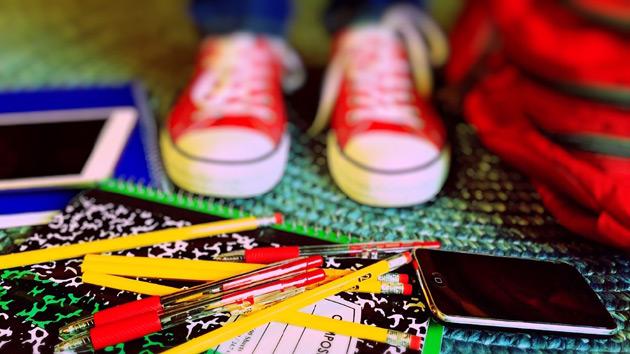Czech experts say teachers do not believe state will support inclusion

Speaking at a press conference, Jana Straková of the Institute for Research and Development in Education at Charles University’s Faculty of Pedagogy said that Czech teachers’ concerns about inclusion flow from insufficient explanations as to what precisely will happen this fall and what kind of aid they will receive. Straková said she believes educators do not trust that the state will provide them with support when they request it.
The chair of the Education Committee of the Czech Parliament, Jiří Zlatuška (ANO), added that concerns over the changes planned for 1 September are also partially due to a natural fear of the unknown. The main change that the amendment to the Schools Act will bring about is financial support for children living with disabilities or disadvantage that will flow directly to schools from the state budget, according to those who participated in the press conference held by the Czech Professional Society for Inclusive Education.
The experts rejected concerns that any school might be closed or that children might be forced to leave special schools as a result of the amendment. They also reminded the press that most children living with disabilities are already educated in mainstream schools in the Czech Republic now.
"Roughly 5 500 children with mild mental disability are being educated in mainstream schools," Klára Šimáčková Laurenčíková, chair of the society, told news server Romea.cz. She believes an atmosphere is being created in which rumors are spreading once more that such children might be forcibly enrolled into mainstream schools against the will of their parents, as well as rumors that children with mild mental disability are not currently attending mainstream schools.
"That’s not true. Many children, precisely those with mild mental disability, have already been integrated for many years already into mainstream schools," she said.
Despite an information campaign about the amendment being conducted by the Czech Education Ministry, voices against the adopted changes are being heard ever more loudly. Inclusion has also been criticized by Czech President Miloš Zeman, even though he signed the amendment a year ago.
In a survey conducted by the Mladá fronta DNES daily, more than 90 % of teachers at primary and secondary schools claimed to oppose inclusion. That result is also said to be due to educators’ lack of faith in the state, which Straková considers comprehensible given the general under-financing of education.
"The teachers do not believe the state will provide them with that support. They are all on their own at the schools very frequently when it comes to some very important and also troublesome tasks. Typically this concerns, for example, children who are a bit unmanageable at school. Teachers need someone who can aid them with such children, and that person is usually not there," said the expert, who focuses on inequality in education.
Zlatuška believes teachers’ negative attitudes are also being highlighted by the "alarm" now being raised by many politicians about this issue. Their warning is coming a year too late and was not expressed when the amendment was negotiated in the lower house.
"Nobody back then raised any material criticism regarding the provisions about inclusion, nobody claimed it would destroy the quality of the schools," he reminded the press. For her part, Laurenčíková believes MPs from the "Dawn of Direct Democracy" movement as well as the Communist Party are making the most frequent statements against inclusion.
"I’d like to remind you that the vast majority of the votes cast by those two parties were in favor of this law, and I don’t understand these exhortations for it not to be implemented. It’s as if we all voted for a law but then wanted to avoid it or never beginning implementing it at all," she told news server Romea.cz.
"It is really not tactical to question this step in and of itself. There is no other way forward," said Straková.
The chair of the Education Committee of the Czech Parliament emphasized that the amendment just further facilitates implementation of existing law. Currently all children are entitled to receive an education at a school in their catchment area, but because of unsystematic financing, many schools are preventing school integration.
The more active schools seek funding from both domestic and EU subsidy programs. "The new Schools Act introduces so-called entitlement to support measures for those children who need some support in education and, thanks to the entitlement granted by the law, schools will be able to access financing for specific support measures such as the salaries for teaching assistants or acquiring special equipment and other support. For many children attending mainstream schools it was not previously possible to access such support. The principals and teachers themselves labeled that fact one of the brakes to inclusion," Laurenčíková told Romea.cz.
Zlatuška commented that existing EU subsidies have been intended to jump-start innovations in the system. The EU is then counting on those innovations being financed from the state budget going forward.
That particular moment in this area has now arrived. Zlatuška said he is not concerned that there might be a lack of financing available for support measures.
The task of the Education Ministry will be to justify the specific sums needed. Education in diverse collectives is essential for the elimination of existing inequalities whereby children’s school results in the Czech Republic are strongly dependent on their family background.
However, greater support for including children with various disabilities need not be enough of a change in and of itself. Multi-year high schools and so-called selective primary schools are opposed to educating children of all kinds together.
"The problem of measures to reduce inequality is that they must be comprehensive. We have begun at the bottom end, but we have left the top end open," said Straková, who acknowledged that this is not an appropriate time for debating the eventual closure of the multi-year high schools.